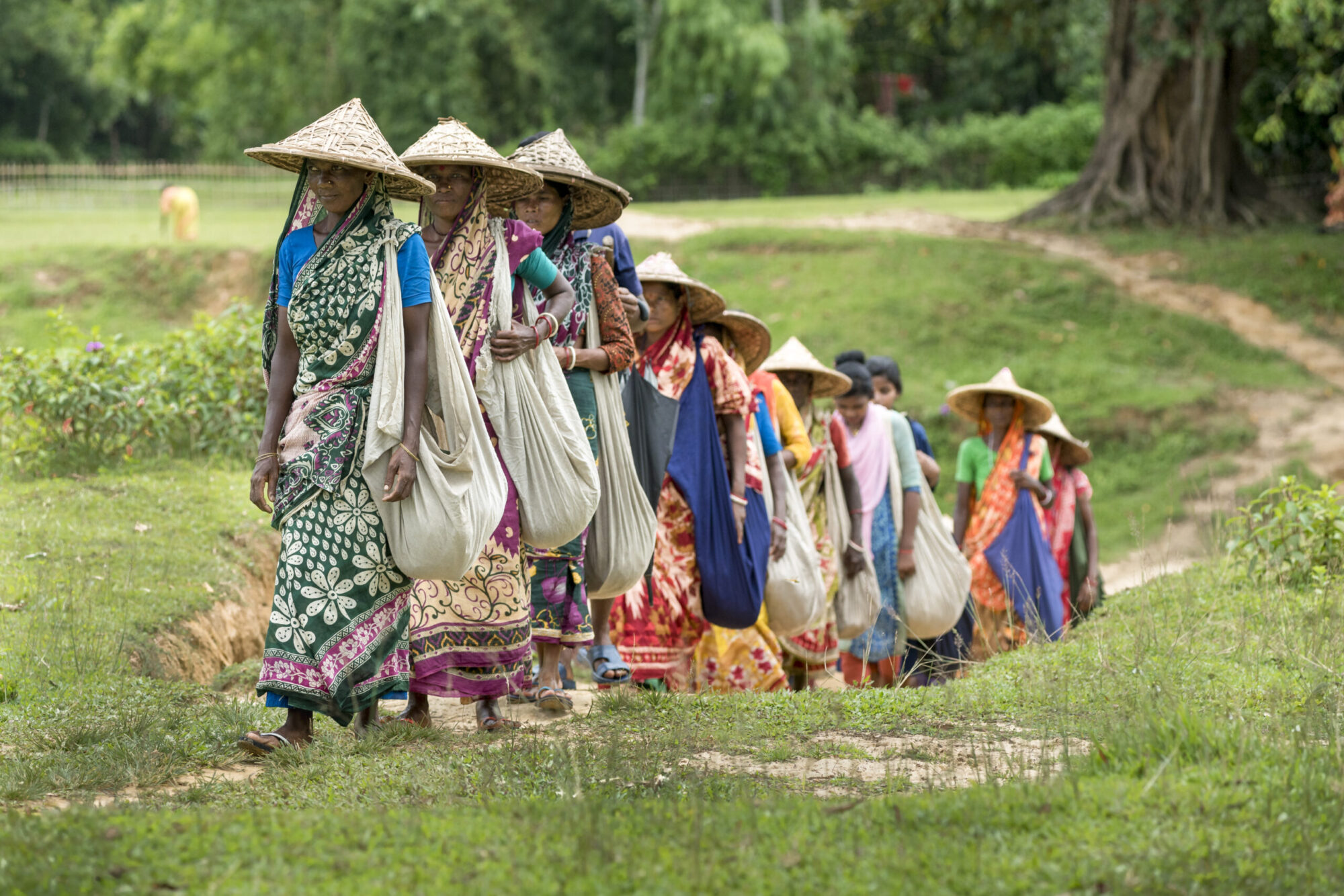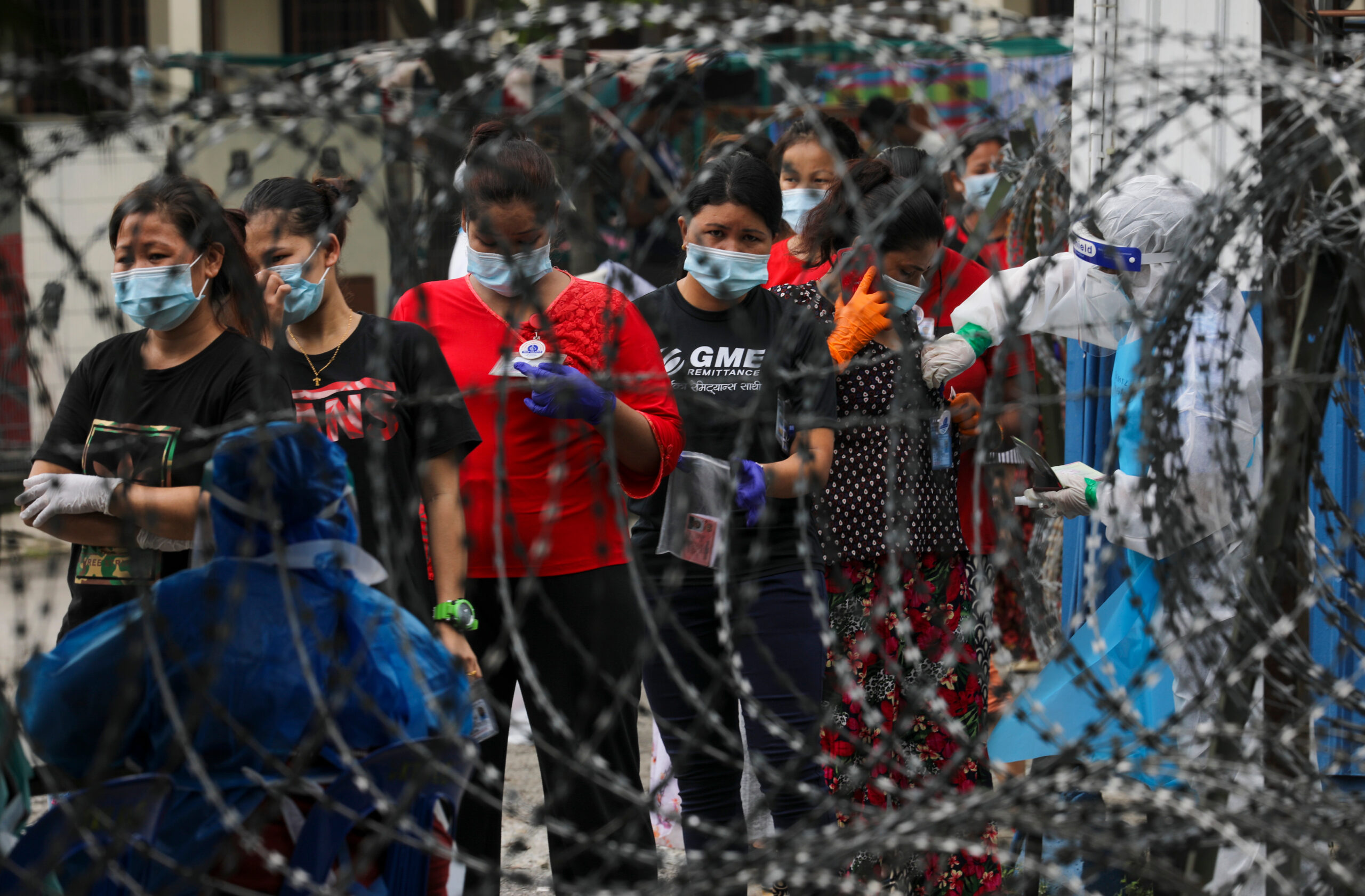Publications
LOW PAY, NO SUPPORT: Sri Lanka Delivery Drivers Fight for Worker Rights
 CLICK HERE TO READ THE FULL REPORT.
CLICK HERE TO READ THE FULL REPORT.

Heat Stress in the Cambodian Workplace
In Cambodia, workers health and safety and climate change are linked. This report details the results of surveys, interviews, and thermal monitoring conducted in the garment, delivery, and informal food sector that display the negative effect that heat has on workers, and give insight on how unions are an effective solution for positive change. “Workers whose union negotiates with their employers over heat mitigation experienced 75% less working time under stress.”
Read the full report here.
2023 Annual Report
In 2023, the Solidarity Center supported workers as they took on exploitative multinational companies and robot algorithms, demanded their governments tackle social ills and deliver on promises, and fought for justice in environments increasingly dangerous to those who defend democracy and work to thwart disenfranchisement and inequality. In our annual report, learn about how the Solidarity Center is standing with workers, trade unions and their movements in 66 countries around the world as they organize and mobilize to create change.
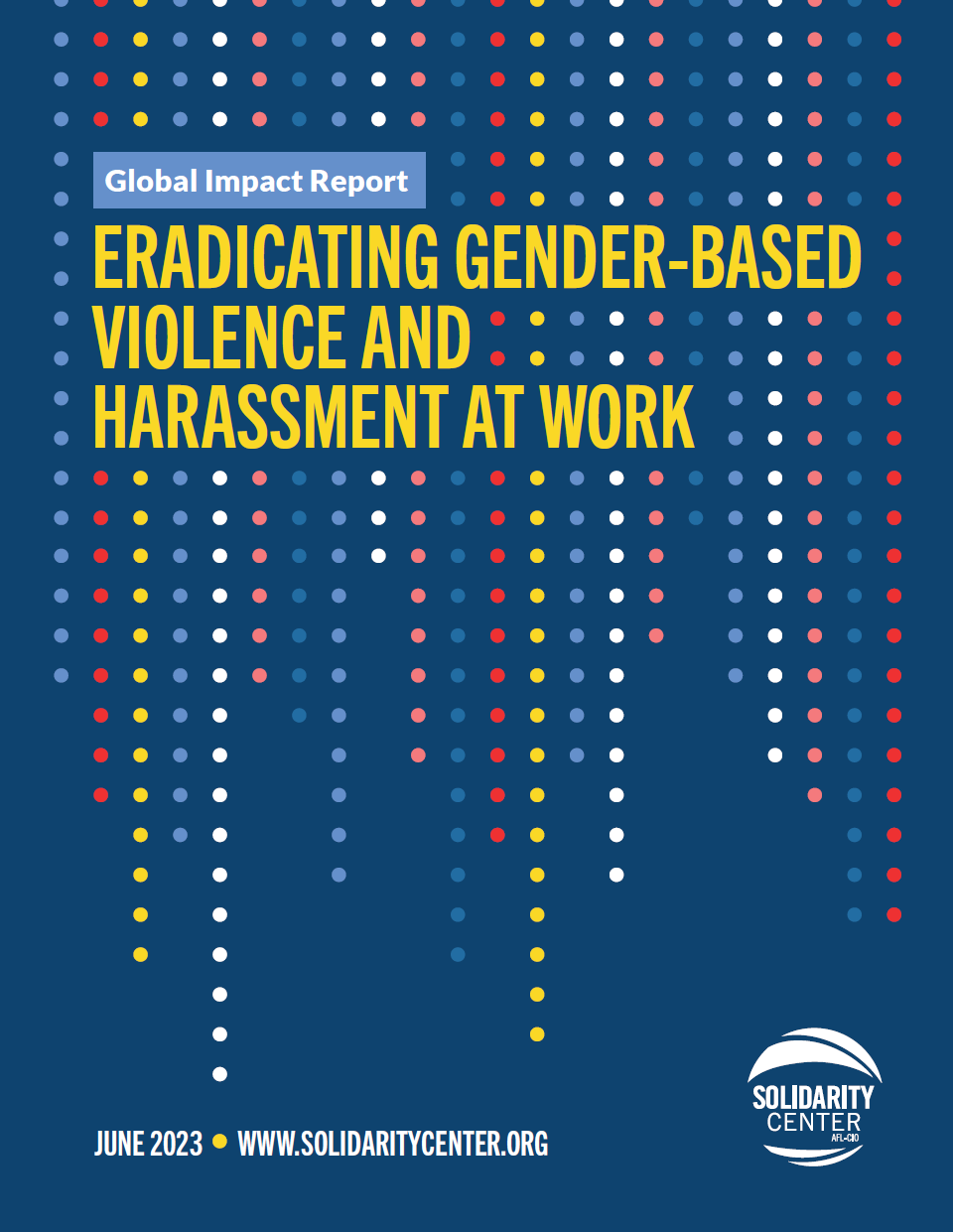
Global Impact report: Eradicating Gender-Based Violence and Harassment at Work
The Solidarity Center Global Impact report highlights the Solidarity Center’s support of unions and civil society organizations in ending gender-based violence (GBVH) at work and showcases key outcomes, including a landmark agreement to address GBVH in Lesotho garment factories.
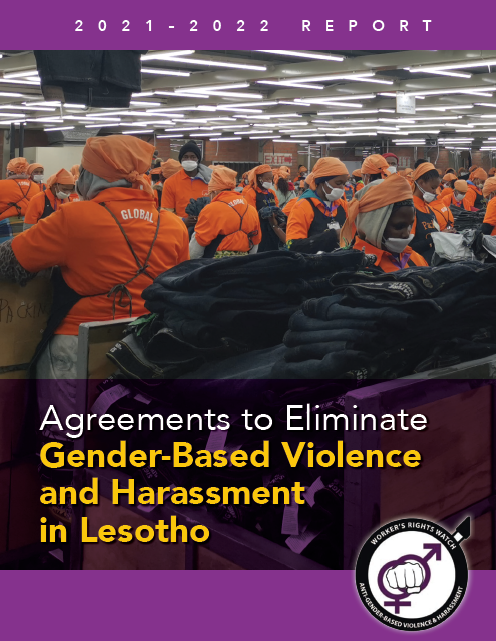
2021–2022 Agreements to Eliminate Gender-Based Violence and Harassment in Lesotho
A report by Workers’ Rights Watch tracks progress on a precedent-setting, worker-centered program in Lesotho garment factories to prevent gender-based violence and harassment (GBVH) of garment workers producing jeans for the global market. The Lesotho Agreements represent the first instance in which brands and their suppliers have entered into enforceable agreements with worker representatives to stop GBVH and protect workers. Sexual violence against garment workers is a well-documented worldwide problem.
2022 Annual Report
In 2022, the Solidarity Center marked a quarter century of supporting embattled workers, advocating and litigating for change, and celebrating worker rights advances in troubled times. As crackdowns on fundamental civil rights intensify around the world, workers and their unions are often the first targets. However, with their collective strength, workers and their movements have proven to be the largest force for protecting democracy. Learn more about how the Solidarity Center is standing with workers, trade unions and their movements in 60-plus countries reaching more than 70 million workers in our 2022 annual report.
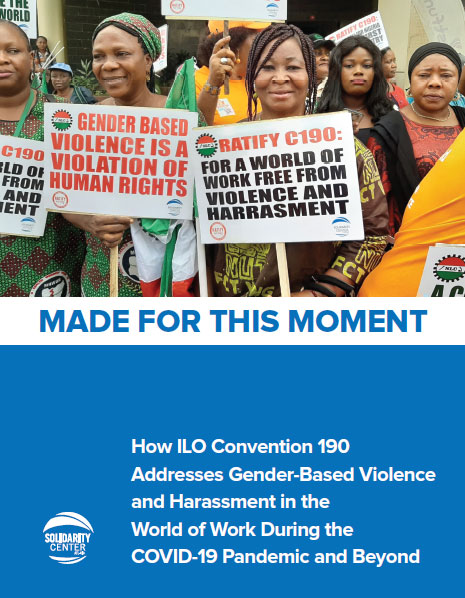
Made for this Moment: How ILO Convention 190 Addresses Gender-Based Violence and Harassment in the World of Work During the COVID-19 Pandemic and Beyond
This report highlights how C190, the first global treaty that recognizes the fundamental right to work free from gender-based violence and harassment (GBVH), addresses GBVH in the world of work and identifies concrete steps to address it.
Read the full report here in English.
Download in Spanish, Arabic or Russian.
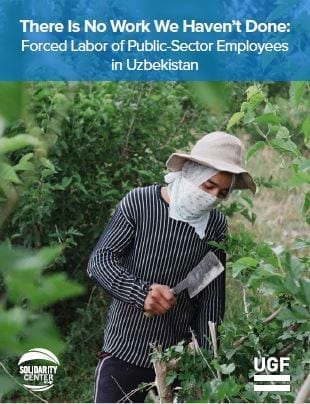
There Is No Work We Haven’t Done: Forced Labor of Public-Sector Employees in Uzbekistan
Although the government of Uzbekistan has made progress on ending child and adult forced labor in the cotton fields after more than a decade of international pressure, a new report finds that forced labor remains rampant in other arenas of Uzbek life, affecting public-sector workers in particular.
Download here in English.
Download here in Russian.
Download here in Uzbek.

